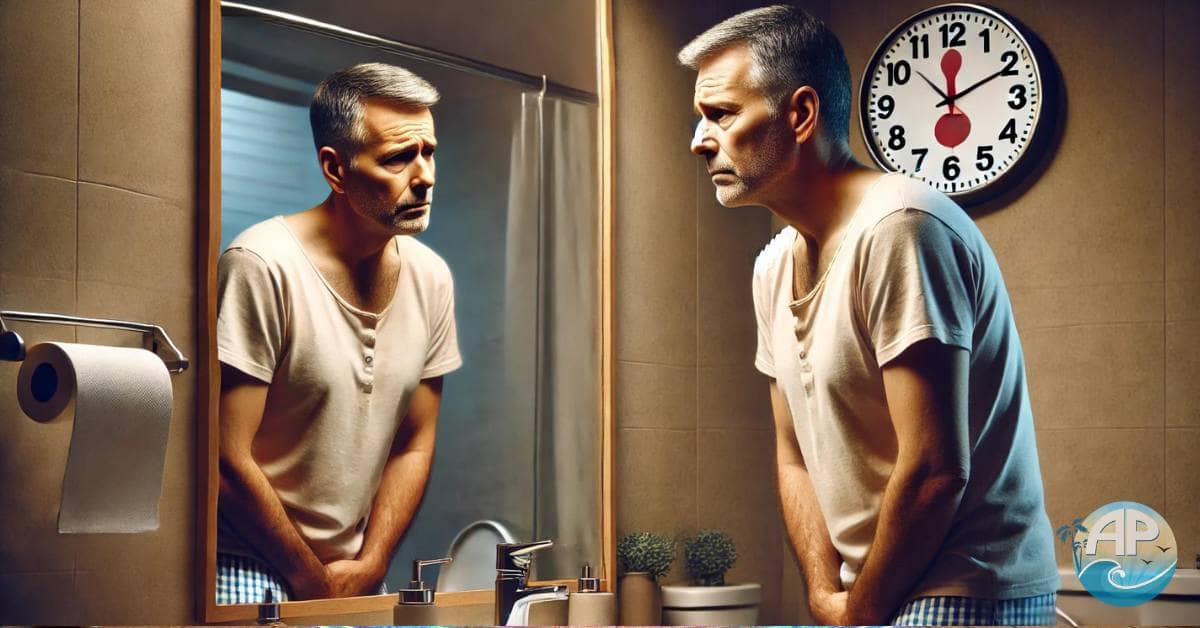Discover the early signs and symptoms of an enlarged prostate and how to detect BPH before it disrupts your life.
Table of Contents
- What is an Enlarged Prostate?
- Early Signs to Notice
- Common Symptoms of BPH
- Why Early Detection Matters
- What to Do About Symptoms
- Stay Proactive About Prostate Health
What Are the Signs and Symptoms of Enlarged Prostate?
Let’s get one thing out of the way—an enlarged prostate, also known as benign prostatic hyperplasia (BPH), is common among men as they age. It happens when the prostate gland, which is part of the reproductive system, begins to grow larger and press against the urethra. This causes a range of uncomfortable urinary symptoms that you may have already noticed creeping into your daily routine.
It’s important to understand the signs and symptoms of an enlarged prostate so you can take action early, improve your quality of life, and avoid more serious complications down the road.
Early Signs of Enlarged Prostate You Shouldn’t Ignore
Aging comes with its fair share of surprises, but not all are welcome. If you’ve noticed changes in your bathroom habits or difficulty with urination, it might be time to pay attention.
Why does it matter?
Because early detection is your best defense. Recognizing the early signs and symptoms of an enlarged prostate can help you manage them naturally before they worsen.
Common Signs and Symptoms of Enlarged Prostate
So, how do you know if you have an enlarged prostate? Let’s break it down.
Frequent Bathroom Trips (Nocturia)
Are you finding yourself waking up more than once a night to go to the bathroom?
Nocturia is one of the first signs of an enlarged prostate. As the prostate presses against your bladder, it creates the sensation that you need to urinate more frequently—even if there isn’t much urine in your bladder.
Waking up multiple times at night to pee isn’t just annoying; it can disrupt your sleep, leaving you tired and groggy the next day.
Weak or Interrupted Urine Stream
Does your urine stream feel weak or start and stop suddenly?
A weak urine stream is another classic sign of an enlarged prostate. When the prostate becomes enlarged, it can narrow the urethra, making it harder for urine to pass through. This can leave you standing at the toilet for longer than you’d like, trying to finish what should be a quick task.
Think of it like a garden hose—when something is blocking the flow, it’s hard to get a consistent stream.
Trouble Starting or Finishing Urination
You know the feeling—you need to go, but when you get to the bathroom, it’s difficult to get started.
This hesitancy is one of the more frustrating symptoms of BPH. The prostate restricts the flow of urine, making it hard to start. You may also experience dribbling at the end, leaving you feeling like you didn’t quite finish the job.
Feeling Like Your Bladder Isn’t Empty
One of the most uncomfortable feelings is the sensation of a half-full bladder after you’ve just used the bathroom. This is another symptom of an enlarged prostate. You may have gone, but your bladder still feels like it’s holding onto more.
If this sounds familiar, it’s time to pay attention. This symptom can lead to more frequent bathroom trips and increase your risk of urinary tract infections.
Why Recognizing the Signs of Enlarged Prostate Early is Key
You might be tempted to shrug off these symptoms, but early detection can make a huge difference.
If left untreated, an enlarged prostate can lead to more serious complications, including bladder or kidney damage. The sooner you recognize the signs and symptoms of an enlarged prostate, the sooner you can take action—whether that means incorporating lifestyle changes, supplements, or consulting with a healthcare professional.
“An ounce of prevention is worth a pound of cure.” – Benjamin Franklin
This is especially true when it comes to prostate health. Don’t wait for symptoms to get worse. Take control of your health now.
What to Do If You Have Symptoms
Noticing symptoms? Here’s what you can do.
- Consult Your Doctor: If any of these signs sound familiar, your first step should be to consult a healthcare provider. They can perform tests to confirm whether you have BPH or if something else is going on.
- Explore Natural Remedies: There are effective natural remedies for enlarged prostate, such as supplements like lycopene, saw palmetto, and beta-sitosterol. These remedies can help reduce symptoms without the side effects of medications.Learn more about Natural Remedies for Enlarged Prostate: Proven Strategies for a deep dive into natural solutions.
- Consider Lifestyle Changes: Small changes, like staying hydrated, avoiding certain foods (red meat and dairy), and reducing stress, can also help manage symptoms. Simple practices like regular exercise and drinking filtered water can go a long way in improving your prostate health.
Conclusion: Stay Proactive About Your Prostate Health
If you’re experiencing the signs and symptoms of an enlarged prostate, you don’t have to suffer in silence. Recognizing the symptoms early, taking a proactive approach, and exploring both medical and natural remedies can greatly improve your quality of life.
Don’t ignore what your body is telling you. From frequent urination to weak streams, these are signals that your prostate may need some extra attention.
Take charge of your health today and consider integrating natural remedies and lifestyle changes into your routine to manage symptoms effectively. The sooner you act, the sooner you can regain control.



